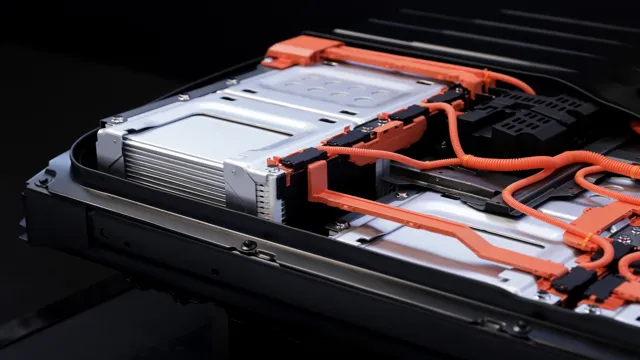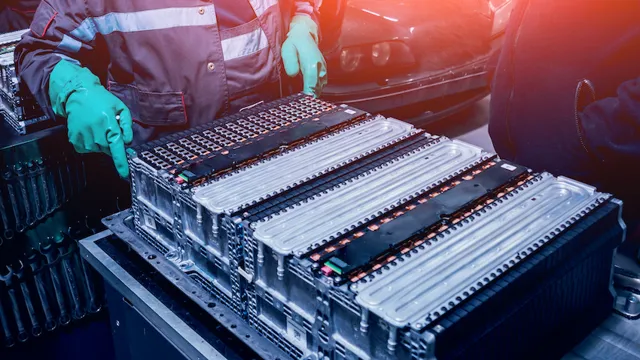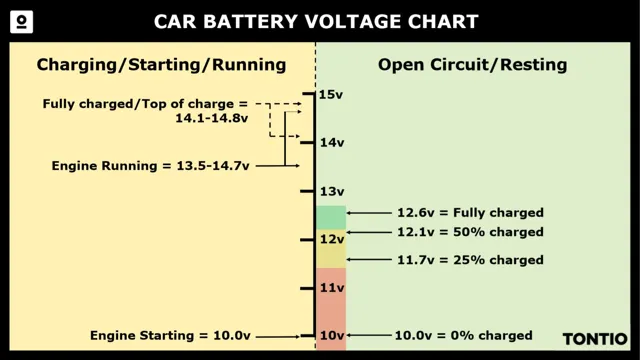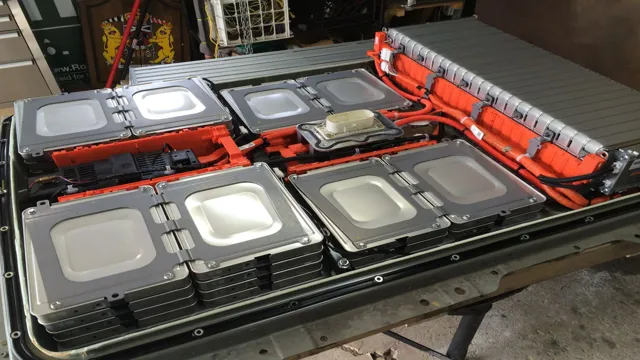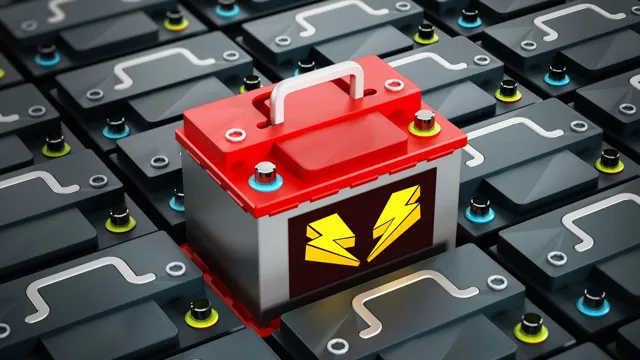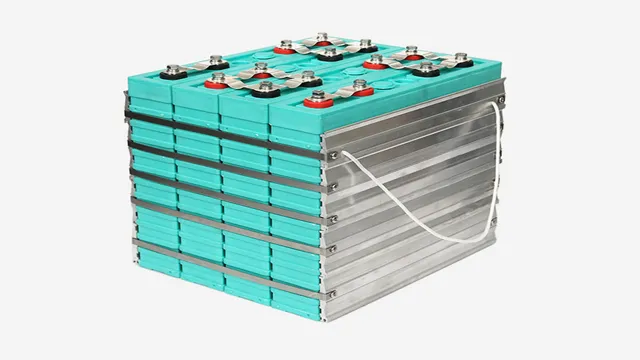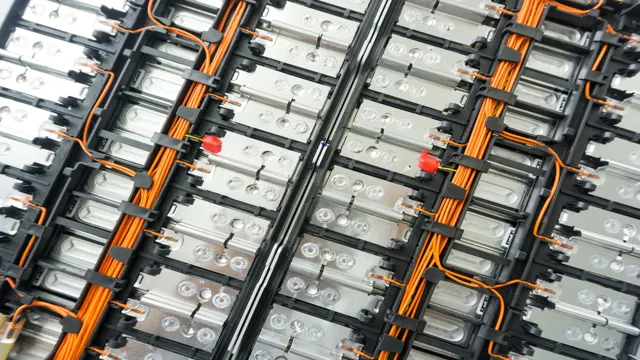The Shocking Truth About Electric Car Batteries: A Comprehensive Guide to Understanding How They Work and Why They Matter
Electric cars are quickly becoming the preferred choice of transportation for many people around the world. As concerns about the environment and the impact of fossil fuels grow, more and more people are turning to electric vehicles for a sustainable option. One of the most significant challenges in making electric cars a viable alternative to petrol counterparts is the battery technology.
But what is it about battery technology that needs to improve, and how is it being addressed in the industry? In this blog, we will explore the role of battery technology in electric cars and how it could influence the future of sustainable transportation. We’ll dive into the current issues surrounding battery power, how the technology works and what developments are being made to improve range, efficiency, and overall performance. So, buckle up as we take a deep dive into the world of battery technology in electric cars!
Lithium-Ion Batteries
Battery technology has played a huge part in the growth of electric vehicles. When it comes to powering electric cars, lithium-ion batteries are the primary choice. They offer high energy density, long cycle life, and fast charging capabilities.
Additionally, lithium-ion batteries are lightweight, which increases the overall efficiency of the vehicle. One of the biggest advantages of these batteries is that they don’t suffer from the “memory effect” that plagued older rechargeable batteries. This means that charging the battery frequently, even when it is not fully discharged, will not cause any ill effects.
This has allowed electric cars to become more practical as they can be charged at public charging stations, or even at home, without having to worry about battery degradation. As technology continues to advance, electric cars will likely become even more efficient, with batteries that last even longer without needing to be charged.
Efficiency and Range
Lithium-ion batteries are renowned for their incredibly high efficiency and range compared to traditional batteries. This is due to the unique chemical composition of lithium-ion batteries, which includes a highly reactive electrolyte that facilitates the flow of ions between the cathode and anode. As a result, these batteries can deliver more power with fewer losses, which means they can hold onto charge for longer periods without experiencing a drop-off in performance.
This exceptional efficiency also translates into a much greater range for electric vehicles and other applications that require high-capacity battery storage. With lithium-ion batteries, you can expect to go further and drive longer without ever having to worry about running out of power. That’s why they are becoming a popular choice for everything from high-performance laptops to electric cars and other transportation modes.
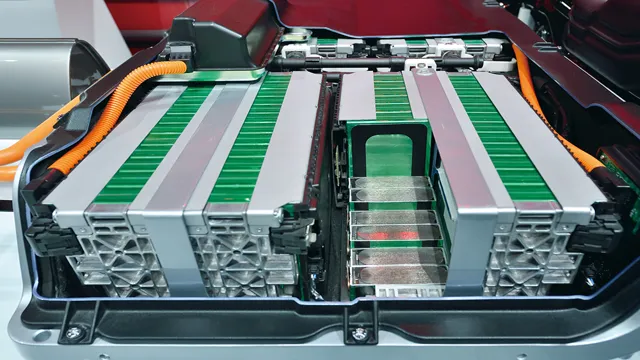
Charging Time and Infrastructure
Lithium-ion batteries are the most common type of battery used in electric vehicles (EVs), thanks to their high energy density and long cycle life. However, their charging time is still a concern for many drivers. While some models can charge to 80% in as little as 30 minutes, a full charge can still take several hours.
This is where infrastructure comes into play. To accommodate EVs, charging stations need to be installed in more locations, such as parking garages and shopping centers. Additionally, advancements in technology, such as wireless charging, can also improve the charging experience for drivers.
As more people switch to EVs, the demand for charging stations will only continue to grow, and it’s up to both the public and private sectors to invest in the necessary infrastructure to support this shift.
Solid-State Batteries
The role of batteries in electric cars cannot be overstated. A good battery is crucial to the smooth running of an electric vehicle. Solid-state batteries are emerging as the next big thing in the world of batteries and could revolutionize the way we think about electric cars.
One of the major advantages of solid-state batteries is their energy density, which is much higher than conventional lithium-ion batteries. This means that solid-state batteries can store more energy in a smaller space, which is particularly important for electric vehicles, where space is at a premium. Another advantage of solid-state batteries is their longevity.
They are expected to last much longer than conventional batteries, which means that electric car owners will have to replace their batteries less frequently. Solid-state batteries are also much safer than conventional batteries since they do not contain flammable or combustible liquids. In conclusion, solid-state batteries have the potential to change the game in electric car design by allowing for smaller, more powerful and safer batteries, which would increase the range and overall efficiency of electric cars.
Potential for Higher Energy Density
Solid-state batteries have the potential to revolutionize the battery industry due to their higher energy density. Unlike traditional batteries that use a liquid electrolyte, solid-state batteries use a solid electrolyte which allows for the packing of more energy into a smaller space. This means that devices like smartphones and electric cars could have longer battery life without increasing in size.
Additionally, solid-state batteries have the potential to be safer and more environmentally friendly than current batteries. With companies like Toyota and Volkswagen investing in their development, it’s clear that solid-state batteries are the future.
Challenges and Progress
Solid-state batteries have the potential to be the future of electric vehicles. They are different from traditional lithium-ion batteries in that they do not use a liquid electrolyte, which can be prone to leaking and catching fire. Instead, solid-state batteries use a solid material as the electrolyte, which can make them safer, more energy-dense, and longer-lasting.
However, there are still many challenges that need to be overcome before solid-state batteries become commercially viable. For one, they can be expensive to produce and require specialized manufacturing techniques. Additionally, there is still a need to improve the energy density and overall performance of solid-state batteries to make them a competitive option.
Despite these challenges, there has been significant progress in the development of solid-state batteries in recent years, and many experts believe that they will become the norm in the coming decades.
Commercial Applications
Solid-state batteries are a promising commercial application for the future of energy storage. Unlike traditional lithium-ion batteries which use a liquid electrolyte, solid-state batteries use a solid-state electrolyte, providing numerous advantages. These batteries offer a higher energy density, longer lifespan, enhanced safety and improved stability which make them ideal for use in electric vehicles, smart grid systems and portable electronics.
One of the biggest advantages of solid-state batteries is that they tend to be more resistant to fire and explosions, which is a major concern for lithium-ion batteries. From an environmental perspective, solid-state batteries are more sustainable because they do not use flammable liquid electrolytes that can be harmful to the environment. Additionally, solid-state batteries can be shaped into various forms allowing for flexibility in design and manufacturing.
While solid-state batteries are still in the development phase, the technology has already attracted significant investment and attention from companies looking to enhance their energy storage capabilities. As research continues to improve the efficiency and scalability of solid-state batteries, they will undoubtedly become an integral part of the energy industry, powering a cleaner and greener future.
Alternative Battery Technologies
Battery technology has come a long way in recent years, particularly when it comes to electric cars. Traditionally, lithium-ion batteries have been the norm in these vehicles, but alternative battery technologies are emerging as potential game changers. One such technology is solid-state batteries, which offer higher energy density, faster charging, and improved safety when compared to lithium-ion batteries.
Another option is flow batteries, which use liquid electrolytes stored outside the battery in large tanks, allowing for easy refueling and longer ranges. While these alternative batteries are not yet widespread in the electric car industry, they present exciting possibilities for the future of transportation. As we continue to seek out more sustainable and efficient ways of powering our vehicles, it is likely that we will see a greater adoption of these innovative battery technologies.
Nickel-Metal Hydride Batteries
The nickel-metal hydride (NiMH) battery is an alternative battery technology that has gained popularity due to its efficiency and eco-friendliness. NiMH batteries are rechargeable and have a higher energy density than their predecessor, the nickel-cadmium battery. This means that a NiMH battery can store more energy in a smaller size, making it an ideal choice for portable electronic devices like laptops, phones, and cameras.
Additionally, NiMH batteries are considered more environmentally friendly due to their lower toxicity and recyclability compared to other battery types. While they are not as common as lithium-ion batteries today, NiMH batteries still have their place in the market and are a reliable choice for certain applications. Overall, the NiMH battery is an option worth considering for those looking for an alternative to traditional battery technologies.
Flow Batteries
Flow Batteries When it comes to advanced energy storage technologies, flow batteries are quickly emerging as a potential game-changer. Unlike traditional solid-state batteries, flow batteries store energy in liquids that can be continuously cycled through the battery to generate power. This unique design allows for rapid refilling and recharging, making it an ideal option for large-scale use, such as powering entire buildings or neighborhoods.
Flow batteries are also highly efficient, with some models boasting energy efficiencies of up to 80%. And with the increasing demand for renewable energy sources, flow batteries are becoming an attractive option for storing excess energy generated by solar or wind power. While there are still some scalability challenges to overcome, the potential benefits of flow batteries suggest that they could be a key player in the future of sustainable energy.
Future of Electric Car Batteries
Battery on electric cars is evolving rapidly, bringing new opportunities and challenges to the automobile industry. Experts predict solid-state batteries will be the future of electric cars, offering significant improvements in range, charging time, and safety. Solid-state batteries use a solid electrolyte instead of a liquid one, which reduces the risk of fire and explosion.
These batteries also store more energy and have a longer lifespan than conventional lithium-ion batteries. However, solid-state batteries are still expensive to produce and are yet to be optimized for mass production. In the meantime, lithium-ion batteries are improving too, with the latest models having higher energy densities, faster charging times, and longer lifespans.
The race to develop better and cheaper electric car batteries is on, and it will be fascinating to see what breakthroughs emerge in the coming years.
Conclusion
In conclusion, batteries are the heart of electric cars, and their importance cannot be understated. They are the power source that propels these vehicles forward into a greener, more sustainable future. Without them, electric cars would simply be glorified golf carts.
So, the next time you see an electric car zooming by, just remember that it’s all thanks to the mighty battery.”
FAQs
How long does the battery of an electric car last before needing to be recharged?
The lifespan of the battery on electric cars varies, but most can travel between 100 and 300 miles on a single charge.
Can you charge an electric car’s battery while driving?
No, currently it is not possible to charge an electric car’s battery while driving. However, some cars do have regenerative braking which recharges the battery while slowing down.
How much does it cost to replace the battery on an electric car?
The cost to replace the battery on an electric car varies depending on the make and model, but it can range from $3,000 to $10,000.
What happens to an electric car’s battery once it needs to be replaced?
Most electric car batteries are recyclable and can be used to create new batteries or repurposed for other energy storage systems. Some manufacturers even offer battery buy-back programs.
